
.png)
Do you ever feel tired of people talking about the “biological clock”? It’s that idea that people with ovaries are running out of time to have children. It can make you feel pressured, judged, or even scared - and it’s not fair.
The truth is, fertility isn’t just about age or eggs. It’s about your whole body working together - including something most people don’t talk about: the vaginal microbiome.
Daye and Twentyeight Health are bringing science back into the fertility conversation. While fertility discussions often stop at hormones and egg counts, research increasingly shows that the vaginal microbiome—the community of bacteria that supports vaginal health—plays an important role in conception and pregnancy outcomes. Together, we’re translating this research into practical, evidence-based insights.
With that in mind, we’re cutting through the noise with science-backed education that connects the dots between vaginal health and fertility. This piece is part of The Vaginal Biome Hub - Twentyeight Health’s new educational series developed in partnership with Daye - designed to bring evidence-based, clinically relevant information on the vaginal microbiome to the forefront of reproductive health conversations.
It’s time the ‘biological clock’ shared the spotlight with what is usually a fertility blindspot: your vaginal microbiome.
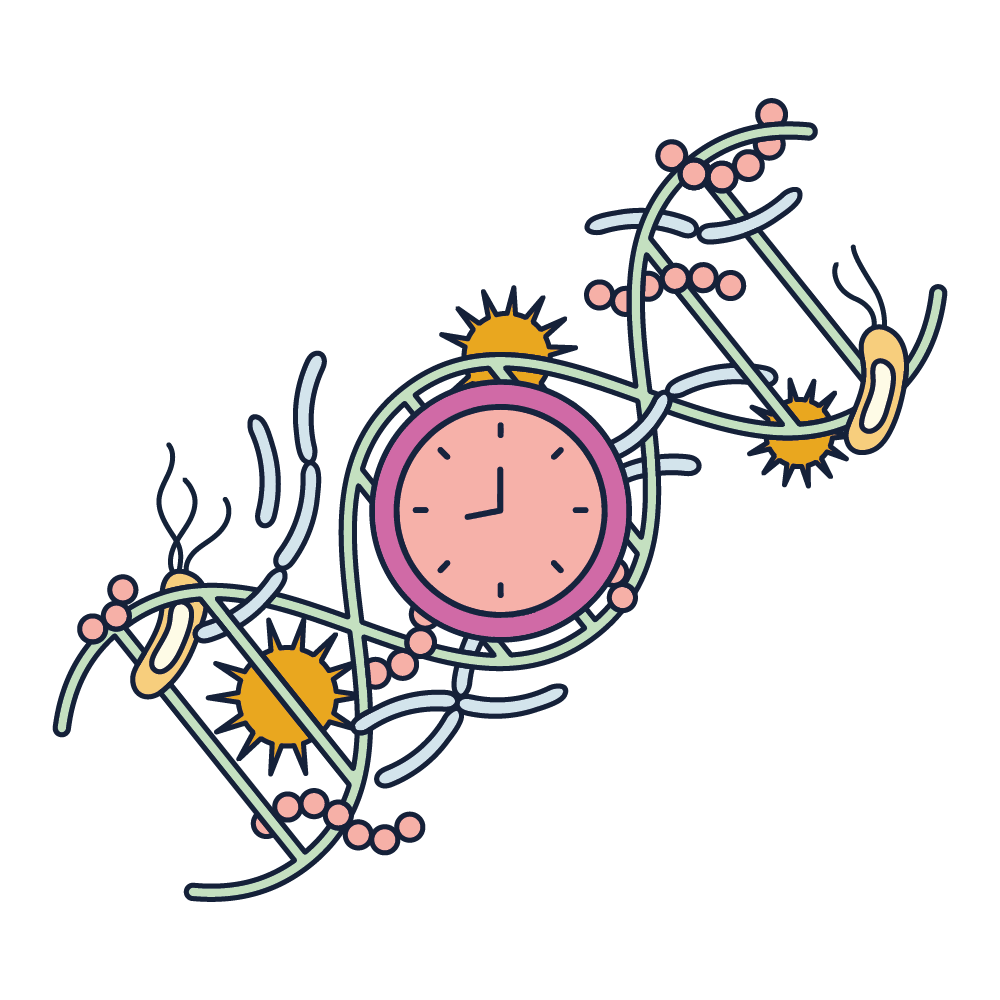
Your vaginal microbiome is a community of tiny living things — mostly bacteria — that live inside your vagina. Don’t panic: most of them are the good kind! They protect you from infections, help keep your vaginal environment balanced, and even play a big role in fertility and pregnancy.
Think of it like a mini garden that takes care of itself. When good bacteria are in charge, your vaginal garden blooms. When bad bacteria start to take over, the balance is lost — and that can cause unpleasant vaginal symptoms.
The main protectors in this garden are friendly bacteria called Lactobacilli.
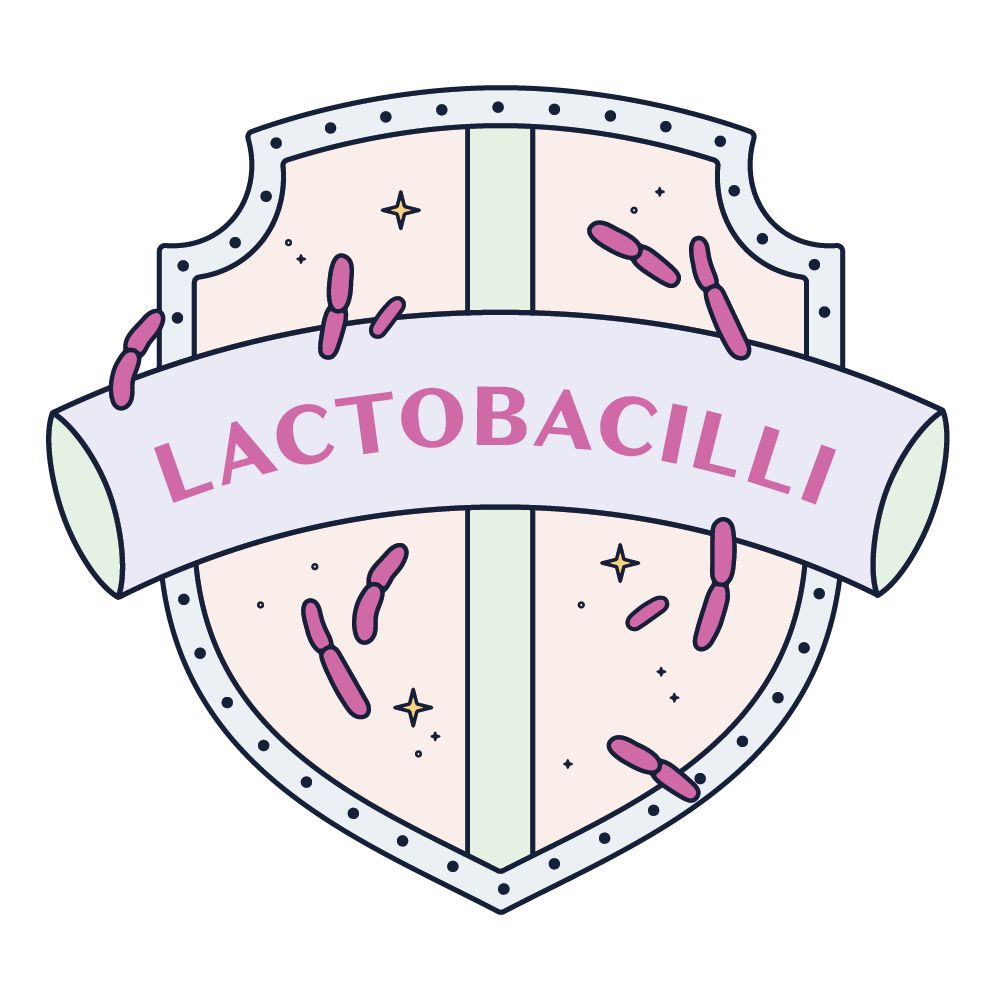
Lactobacilli are like superheroes for your vaginal health. They make a natural acid that keeps your vagina’s pH level low — between about 3.8 and 4.5 — which is the perfect level to fight off harmful germs.
When your Lactobacilli are healthy, they help prevent yeast infections, bacterial vaginosis (BV), and even some sexually transmitted infections (STIs). They also keep sperm healthy, which makes it easier to get pregnant.
Scientists have found that people with more Lactobacilli often have better chances of becoming pregnant and staying pregnant. Having plenty of Lactobacilli is linked with fewer early miscarriages and lower risk of preterm birth.
One particular kind, called Lactobacillus crispatus, has been linked to higher success rates in IVF (in vitro fertilization) — that’s when doctors help fertilize an egg outside the body.
So, protecting your Lactobacilli isn’t just about comfort — it’s about supporting your fertility and overall health.
Sometimes the vaginal microbiome can get out of balance. When that happens, bad bacteria or viruses can start to grow too much and crowd out the good ones.
One bacteria that can cause trouble is called Ureaplasma. It’s usually harmless when there’s only a small amount. But when it grows too much, it can cause irritation or inflammation (that’s when tissues become red, sore, or swollen) — and that can make it harder to get pregnant.

Ureaplasma has also been linked to BV, which happens when there aren’t enough Lactobacilli and too many harmful bacteria. BV can cause unusual discharge, odor, or irritation, and may make it harder for an embryo to attach in the uterus. It’s also been linked to lower IVF success rates.
The good news is that most of these problems — like BV, Ureaplasma overgrowth, and low Lactobacillus levels — are treatable. Once you know what’s happening inside your microbiome, your healthcare provider can help you get it back in balance.
You don’t need to go to a clinic to learn what’s going on in your microbiome. With Daye’s at-home Vaginal Microbiome Test, you can collect a sample yourself, mail it to a lab, and get clear results about which bacteria live in your vagina.
The test uses a powerful lab method called qPCR (quantitative polymerase chain reaction). It looks only for bacteria proven by science to affect fertility, pregnancy, and vaginal comfort — not every harmless microbe that happens to be there.
The result: a simple, science-based snapshot of your vaginal health. You’ll see whether your Lactobacilli are thriving and if any harmful bacteria might need attention.
You can review the results with an OB-GYN, nurse, or pharmacist, or schedule a consultation with Daye’s expert team to get personalized advice.
Knowing what’s happening inside your body helps you make smart, confident choices — and gives you control over your health.
Your period and the rest of your monthly cycle can also give clues about your vaginal and hormonal health.
Your hormones — mainly estrogen and progesterone — rise and fall throughout the month. When estrogen levels are high (around ovulation), your vagina usually has more Lactobacilli and stays more acidic, which keeps it protected.
When estrogen drops (like before your period), the vagina can become less acidic — and that’s when infections are more likely.
You might notice your discharge changes, too. Around ovulation, it often becomes clear, stretchy, and slippery — a sign your body is fertile. But if your discharge looks thick, clumpy, or has a strong smell, that can be a sign of an imbalance or infection.
Tracking your period and noticing these changes can help you catch early signs that your microbiome needs attention — long before symptoms get worse.
Fertility tests and treatments can be expensive, but learning about your vaginal microbiome doesn’t have to be.
Daye’s science-based at-home test lets you check your vaginal health without paying hundreds for private fertility appointments. If you want help understanding your results, Daye’s experts can walk you through them and help you plan next steps.
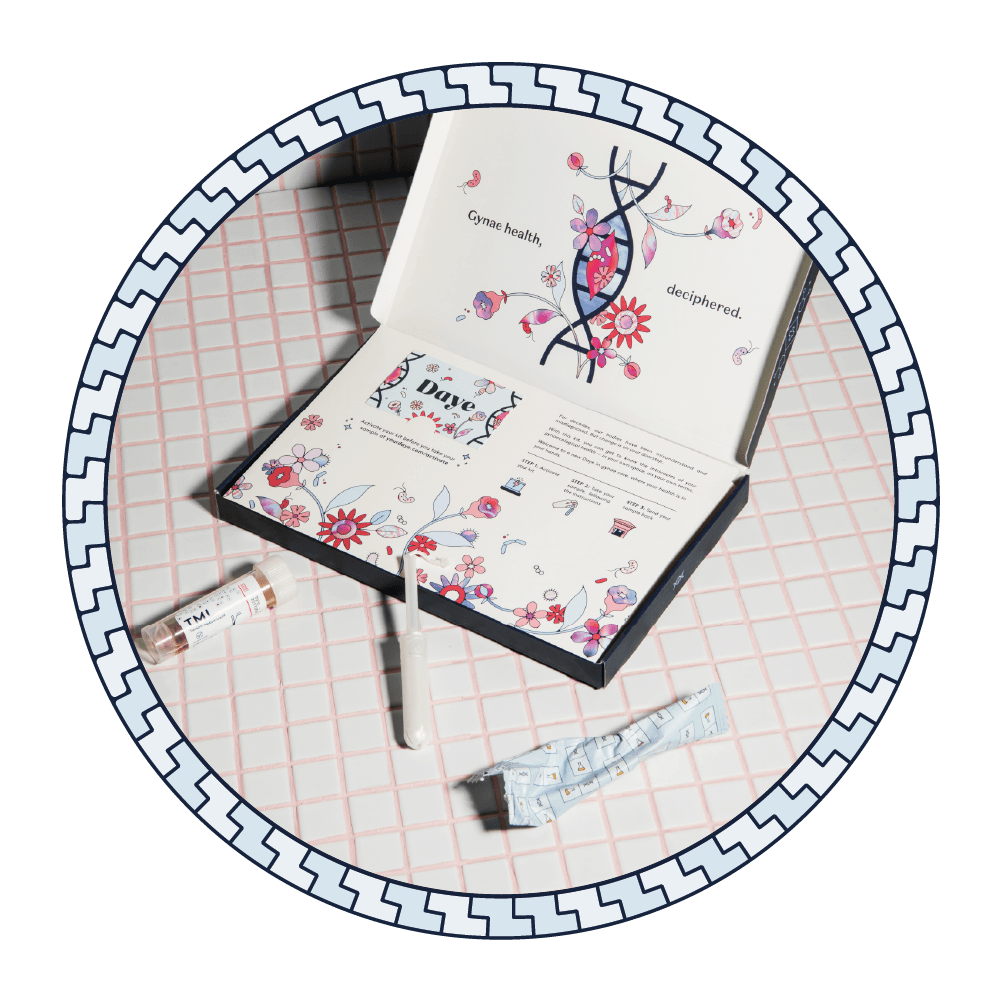
If your microbiome looks healthy but you’re preparing for pregnancy, you can also support your body with prenatal vitamins — Twentyeight Health offers provider backed options designed for reproductive and vaginal health.
And if you ever need treatment for UTIs, BV, or yeast infections, Twentyeight Health provides discreet, fast access to care — so you can get help quickly and confidently, in just 4-6 hours.
For too long, conversations about fertility have focused only on age. But your body isn’t a ticking clock — it’s a living, connected system.
Your hormones, microbiome, and overall wellness all work together, and when they’re in balance, your body has the best chance to conceive and carry a healthy pregnancy.
By learning about your vaginal microbiome, you’re doing something powerful: you’re taking charge of your reproductive health with real science, not fear.
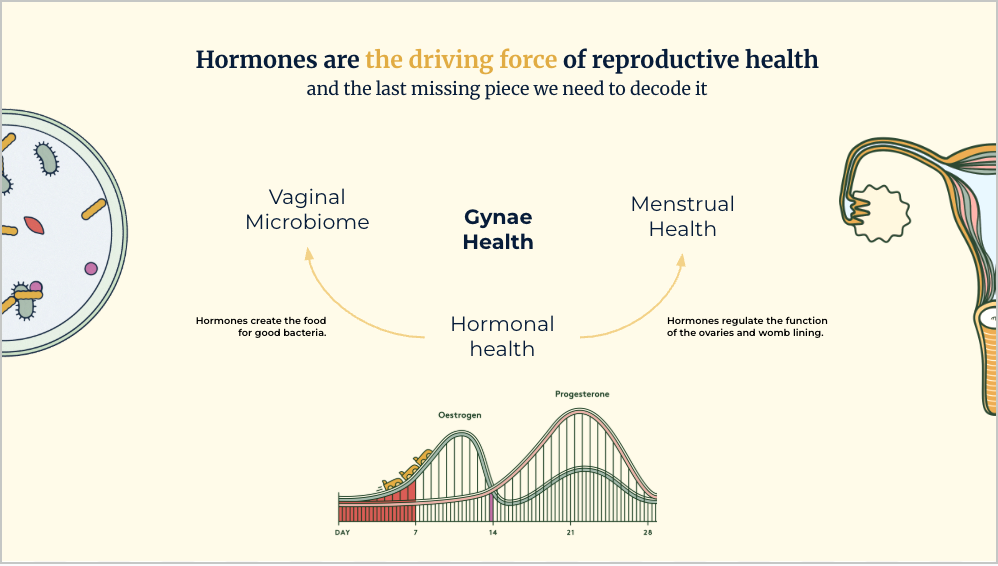
Fertility is about more than time — it’s about knowledge, balance, and care.
Stay tuned for the next article of the Vaginal Biome Hub, for more research-driven insights.
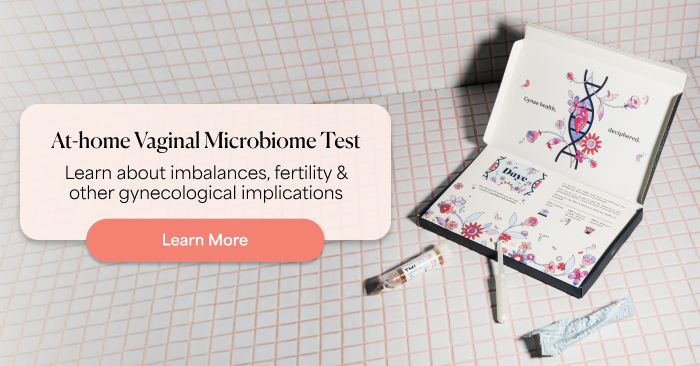
Biological clock – The idea that fertility decreases as people get older.
Bacteria – Microscopic living things that can be good (helpful) or bad (harmful).
Vaginal microbiome – The mix of bacteria living inside the vagina.
Lactobacilli – Good bacteria that protect the vagina from infection.
pH – A scale that shows how acidic or basic something is.
Acidic – When something has a low pH, like lemon juice. The vagina’s healthy state is slightly acidic.
Pathogen – A germ that can cause illness.
Inflammation – Redness or swelling caused by infection or irritation.
Bacterial vaginosis (BV) – A common vaginal infection caused by too few good bacteria.Prenatal vitamins – Vitamins taken before and during pregnancy to support a baby’s healthy growth.
UTI (Urinary tract infection) – An infection that affects the bladder or urinary system.
Ureaplasma – A type of bacteria that can cause problems when it overgrows.
IVF (In vitro fertilization) – A fertility treatment where eggs are fertilized outside the body.
qPCR – A lab test that identifies and measures specific bacteria or viruses.
Estrogen – A hormone that helps protect the vagina and supports fertility.
Progesterone – A hormone that helps the uterus get ready for pregnancy.
This article was reviewed by Twentyeight Health's clinical team. The information provided in this article is for educational purposes only and does not constitute medical advice, diagnosis, or treatment. This content does not establish a provider-patient relationship. Always consult a licensed healthcare professional regarding any medical concerns.